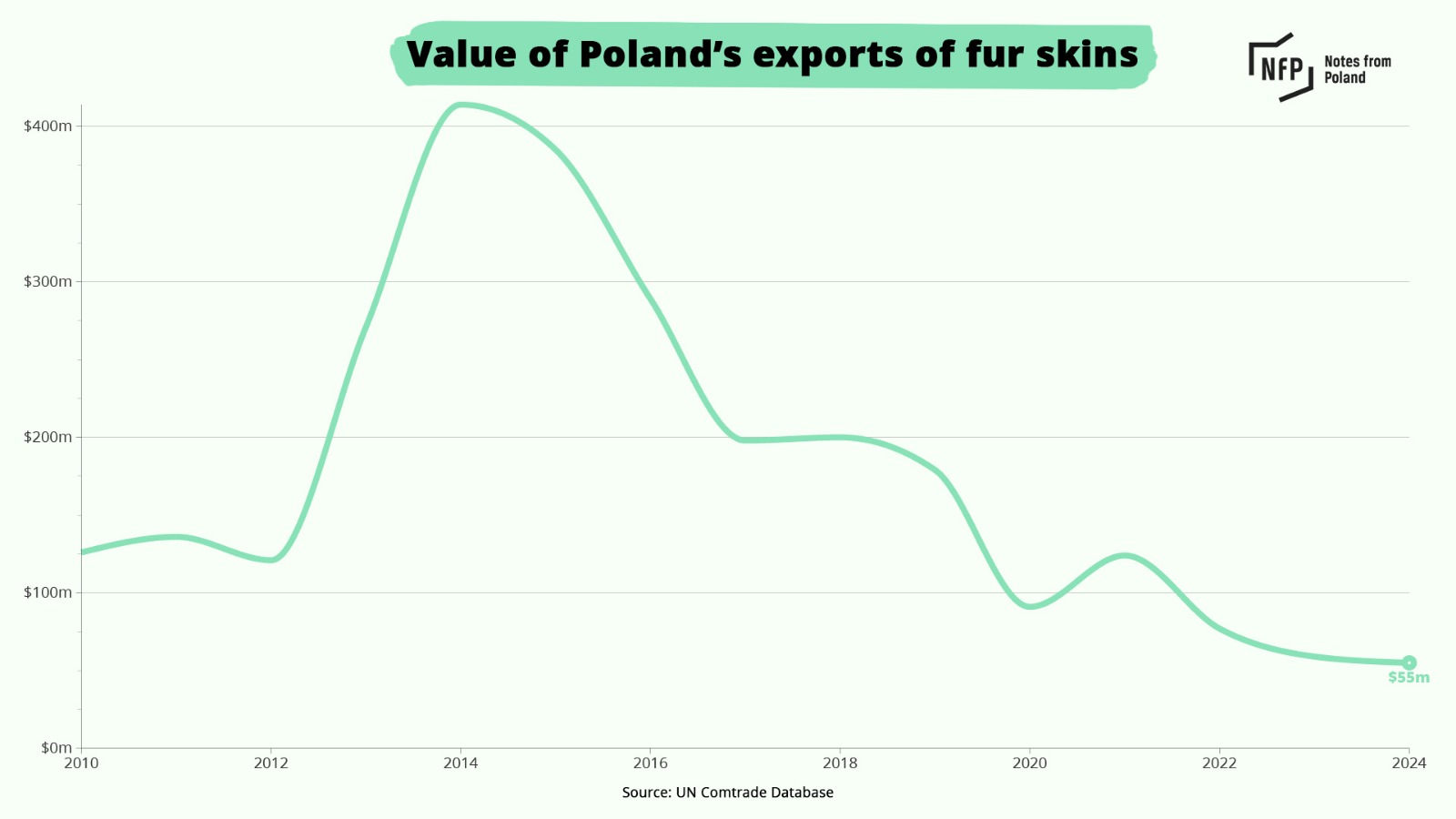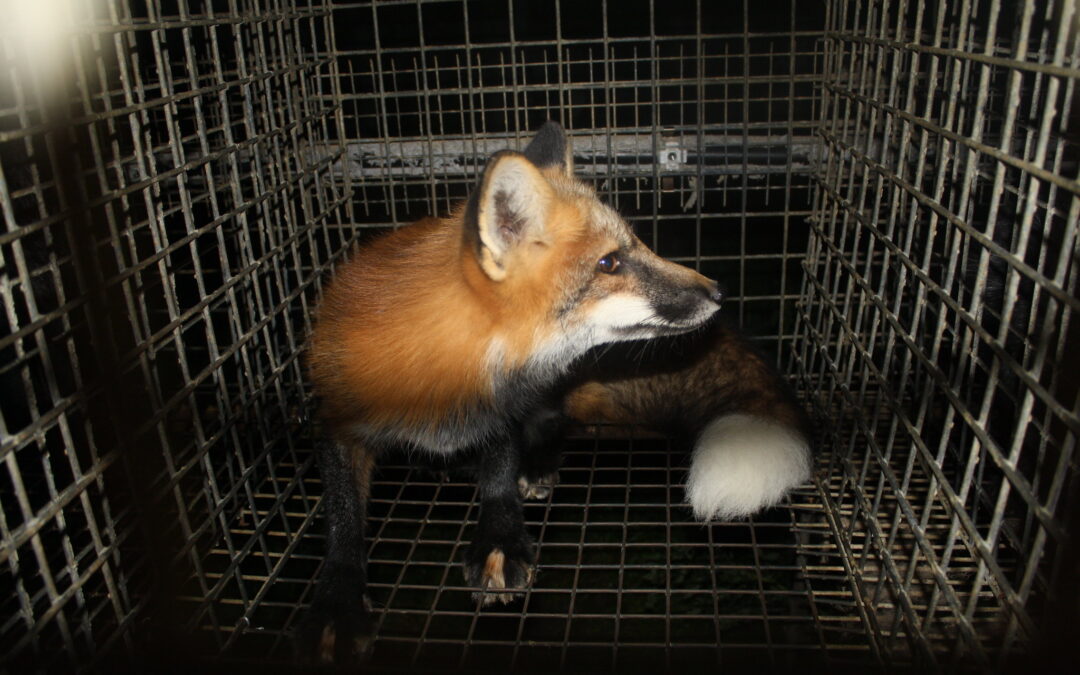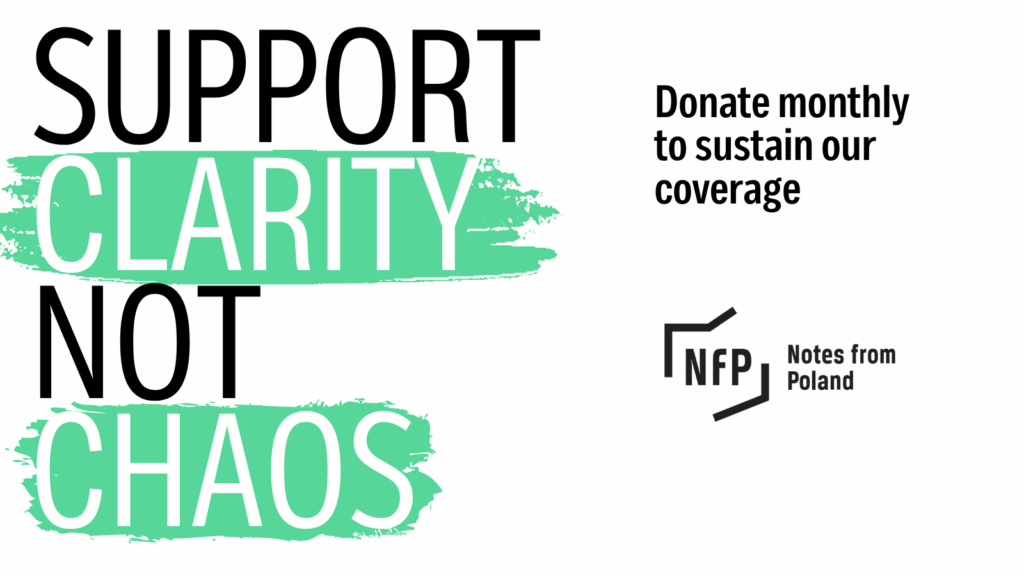Keep our news free from ads and paywalls by making a donation to support our work!

Notes from Poland is run by a small editorial team and is published by an independent, non-profit foundation that is funded through donations from our readers. We cannot do what we do without your support.
Poland’s parliament has approved a ban on fur farming, setting an eight-year phase-out period and introducing a compensation scheme for breeders who close their businesses early. Poland is the world’s fourth-largest exporter of fur skins, though the industry has been shrinking for years.
The bill won the backing of nearly three-quarters of lawmakers in the more powerful lower-house Sejm, including both the entire ruling coalition and many MPs from the national-conservative opposition Law and Justice (PiS) party.
The legislation still needs the approval of PiS-aligned President Karol Nawrocki, who recently said that he was opposed to similar animal-protection measures proposed in the past. However, even if Nawrocki issues a veto, it can be overturned by a three-fifths majority in the Sejm.
TO SIĘ DZIEJE!
Sejm właśnie przegłosował ustawę o zakazie hodowli zwierząt na futra!
To ogromny krok w stronę zakończenia cierpienia milionów lisów, norek i jenotów hodowanych na futra 🥹339 głosów za, 78 przeciw, 19 wstrzymujących się.
💪 Dziękujemy Ci za każdy podpis,… pic.twitter.com/eOLa7I9pfQ
— Otwarte Klatki (@otwarteklatki) October 17, 2025
Under the proposed measures, fur breeders would have until 31 December 2033 to wind down operations and may apply for compensation based on how soon they close their businesses.
Those shutting down by 1 January 2027 will receive up to 25% of their average income from 2020-2024, with payments decreasing by five percentage points each year. Compensation will not be available after 1 January 2031.
The bill was tabled by three groups from the ruling coalition: the centrist Civic Coalition (KO), The Left (Lewica) and the centrist Poland 2050 (Polska 2050). The Polish People’s Party (PSL), a centre-right agrarian party that is also part of the government, likewise voted for the bill despite earlier reservations.
Lawmakers from PiS party were divided: 100 of them voted in favour, 55 against, with another 33 abstaining or absent. The far-right, free-market Confederation (Konfederacja) was opposed, meaning the bill passed with 339 votes in favour and only 78 against.
The result of the vote drew applause in the Sejm chamber and was welcomed by the ruling majority.
“The practice of skinning animals to look prettier is coming to an end,” wrote Włodzimierz Czarzasty, a deputy speaker of the Sejm and one of the leaders of The Left.
Confederation deputy leader Krzysztof Bosak, however, criticised the move, saying it would harm the economy.
“Animal breeding is a profitable branch of the economy, and we consider it unwise to eliminate ourselves from a market where Polish breeders can earn money,” he said, quoted by Polish Press Agency (PAP). He called the ban “unconstitutional” and argued that compensation would burden taxpayers.
Ustawa zabraniająca hodowlę zwierząt na futra przyjęta. Kończy się obdzieranie zwierząt ze skóry po to żeby ładniej wyglądać. Przeciw była Konfederacja. Znając tych ludzi nie dziwię się. Ale się brzydzę takim postępowaniem.
— Włodzimierz Czarzasty 📚📖 (@wlodekczarzasty) October 17, 2025
Data indicate that the fur industry plays a limited and shrinking role in the Polish economy. In 2024, Poland exported fur skins worth $55 million, the fourth-highest value globally after Finland, Denmark and the United States, down from a peak of $414 million in 2014, according to the UN Comtrade Database.
Given that Poland exported a total of $380 billion worth of goods in 2024, fur skin exports represented just 0.014% of all exports, compared with 0.2% in 2014.
According to a poll conducted in April this year by state research agency CBOS for animal rights NGO Otwarte Klatki, 66% of Poles support banning fur farming, including 61% of PiS voters. The strongest support was among The Left’s voters (84%) and the lowest among Confederation’s (47%).

Now that the bill has been approved by the Sejm, it passes to the upper-house Senate, which can briefly delay or suggest amendments to legislation but not prevent its passage.
After that, the bill would pass to PiS-aligned President Nawrocki, who can sign it into law, veto it or send it to the constitutional court for assessment. There remain doubts over whether he would support it.
When PiS was in power in 2020, its leader, Jarosław Kaczyński, a well-known animal rights advocate, attempted to introduce a legislative package dubbed “five for animals” that would have banned fur farming, limited ritual slaughter, and prohibited the use of animals in circuses, among other things.
Secret filming at Poland's biggest fur farm has revealed evidence of alleged abuse
The footage was quickly followed by a proposal from the ruling party to ban fur farming, as most EU countries have done. Poland's fur industry is one of the world's biggest https://t.co/jMfwWPR8Bz
— Notes from Poland 🇵🇱 (@notesfrompoland) September 8, 2020
However, the measures were met with major protests by farmers and failed to receive approval by parliament after many lawmakers from Kaczyński’s camp voted against them.
During his successful presidential election campaign this year, Nawrocki said that he believed the “five for animals” initiative was “a mistake” and that he opposed its measures, though he did not specify which ones or explain why.
However, even if Nawrocki were to veto the fur-farm ban, that decision could be overridden by a three-fifths majority in the Sejm – something that Friday’s vote suggests would be possible.
Most EU countries have already introduced bans on fur farming or measures to phase out the practice. The European Commission in 2023 began exploring a possible EU-wide ban. It is expected to take a position on the issue by next year.

Notes from Poland is run by a small editorial team and published by an independent, non-profit foundation that is funded through donations from our readers. We cannot do what we do without your support.
Main image credit: Otwarte Klatki (under CC BY 2.0)

Alicja Ptak is deputy editor-in-chief of Notes from Poland and a multimedia journalist. She has written for Clean Energy Wire and The Times, and she hosts her own podcast, The Warsaw Wire, on Poland’s economy and energy sector. She previously worked for Reuters.




















